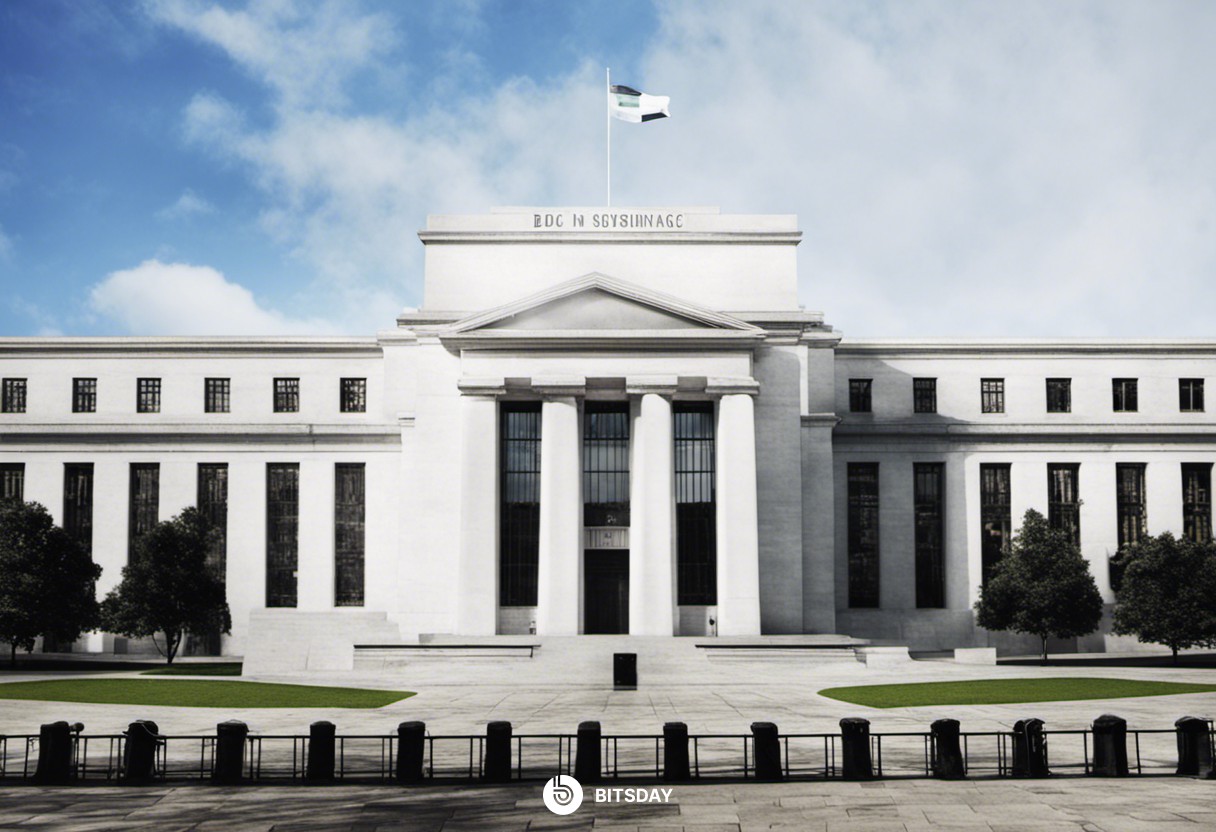- Home
- Cryptocurrency
- Cryptocurrency Oversight Act Unveiled
Cryptocurrency Oversight Act Unveiled

On the 20th of September, amidst the changing hues of autumn, a significant event unfurled in the hallowed corridors of the legislative realm—the CBDC Anti-Surveillance State Act triumphantly emerged from the labyrinthine deliberations of the esteemed Financial Services Committee. A day marked not only by the celestial dance of celestial bodies but also by a monumental stride in the ongoing battle to safeguard civil liberties against the creeping tendrils of an ever-expanding government surveillance apparatus.
The indefatigable Republican Senator Tom Emmer, a beacon of resolve in these tumultuous times, showered commendations upon this momentous occasion, proclaiming it as a historical epoch—a triumphant step forward in the perpetual struggle to fortify against the encroaching shadows of an omniscient state.
The relentless struggle against the Federal Reserve's maneuvers in the realm of CBDC development has been a focal point for the House Majority Whip. The struggle, akin to a cosmic ballet, has seen valiant efforts to resist and counter the gravitational pull towards the development of a centralized digital currency.
The first anti-CBDC bill in the United States passed out of the Financial Services Committee today! A historical step in defending against an ever-expanding government surveillance state. https://t.co/1XXSEHOhNC
— Tom Emmer (@GOPMajorityWhip) September 20, 2023
Legislation Against CBDC Progresses
The Act, an opus of legislation, marks a watershed moment—the first of its kind, a gallant anti-CBDC crusade initiated within the United States. Senator Emmer, the maestro behind this legislative symphony, initially conceived the CBDC bill in the throes of January 2022. The crescendo of its formal introduction to the esteemed halls of Congress resonated in the crisp air of February 2023.
At the heart of this monumental endeavor lies a singular purpose—a purpose intended to shackle the Federal Reserve's ambitions, curtailing their ability to mint a programmable CBDC. Emmer, a modern-day oracle, foresees this digital currency as a veiled surveillance instrument, potentially undermining the very essence of the American way of life.
A symphony resonates through the hallowed halls of Capitol Hill, echoing the resonance of democratic voices—the bill finds favor with 60 esteemed members of Congress and various industry groups, a testament to its resounding melody.
Amidst the symphony, Senator Emmer raises a cautionary baton, drawing attention to the profound distinctions between a CBDC and decentralized digital assets. A CBDC, he contends, is not a mere mirage in the digital sands but a concrete entity transacting upon a digital ledger, meticulously sculpted and directed by the hand of government intervention.
In short," he proclaims, "a central bank digital currency embodies the essence of government-controlled programmable money. If not designed akin to the cherished physical cash, it could bestow upon the federal government the ominous power to surveil and curtail the transactions that shape the American tapestry.
Senator Emmer's metaphorical sonnet paints the landscape of China, a canvas where this reality has already been brushed in broad strokes. The ruling communist party, akin to an artist with a totalitarian palette, has sketched a CBDC, a brushstroke that meticulously traces the spending patterns of its populace. This digital mosaic has birthed a social credit system, a diorama where rewards and sanctions are meted out based on the hues of individual conduct.
Another stroke of the brush reveals the Canadian government's freezing of bank accounts during the 2020 trucker protests—an artistic vignette illustrating the potential misuse of such centralized control. "Perhaps that may find resonance in the northern realms," he articulates, "but in this land, it resonates discord."
He leaves the audience with a haunting refrain, a warning etched in the annals of time: "If a CBDC does not embrace the virtues of openness, permissionlessness, and privacy akin to the cherished cash, it is naught but a tool of surveillance, a sonnet in the style of CCP, a weapon to subdue the very melody of the American way of life."
Restrictions on Federal Reserve Digital Currency
The bill, with its melodic articulations, expressly forbids the Federal Reserve from extending the CBDC's embrace to individuals—a safeguard, he enunciates, to prevent the metamorphosis of the central bank into a retail entity, capable of weaving a web to ensnare personal financial data.
In the grand opus of legislation, the bill orchestrates a prohibition, restraining the central bank from employing any CBDC to conduct the operatic intricacies of monetary policy.
As the curtains draw on this act, the legislation now waltzes towards a grandiose finale—a vote before the resplendent House. Should it find favor amidst the applause, the baton of judgment would then pass to the Democrat-controlled Senate—a climax laden with uncertainty, as the audience of politicians, with varied allegiances, readies for the final act.
In the vast cosmic expanse of opinions, aligning with the constellations of opposition to CBDCs, emerges US presidential candidate Robert F. Kennedy Jr. His voice joins the chorus, resonating with the foundational themes woven into Senator Emmer's magnum opus. "This is why I stand in opposition to CBDCs," he intones, "for they hold within their digital strands the potential to amplify the government's power—an ominous power to stifle dissent with a mere keystroke."
Thus, the grand opera of CBDCs continues, with its crescendos and diminuendos, each note a reflection of the symphony of political ideologies, echoing across the vast auditorium of modern democracy.
Read more: XRP Projections and Potential Surges

Trending



Press Releases

Deep Dives







